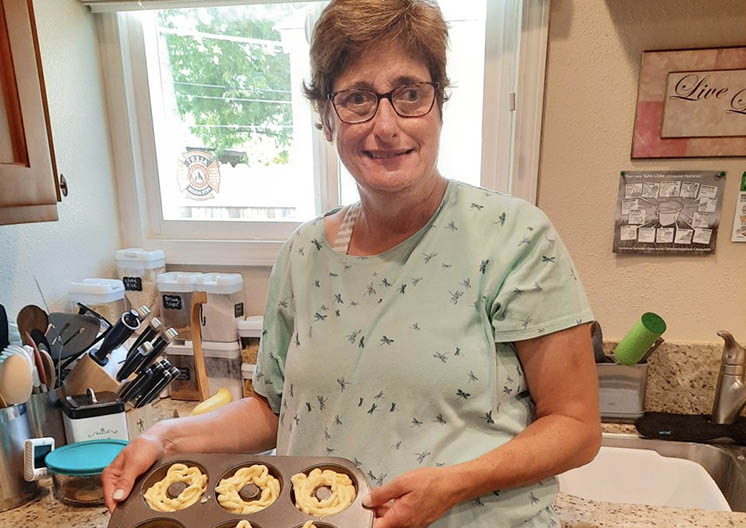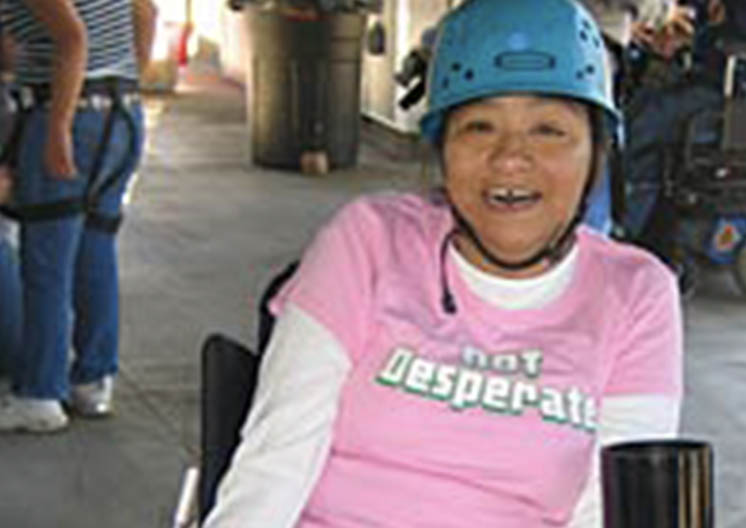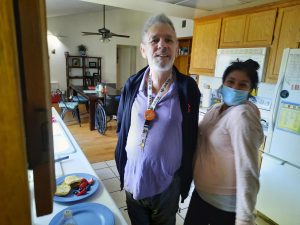5 Principles and PCAS
Program Overview
Strategies to Empower People was an early pioneer in Supported Living Services (SLS) and has become a model of innovation since it began offering SLS in 1994. SLS has a unique service delivery, assured by the Lanterman Act and based on the 5 principles: A Home of One’s own, Choice and Self Direction, Community membership, Relationships and Flexible and tailored services and supports. SLS helps individuals establish and maintain a safe, stable and independent life in his or her own home by providing assistance with daily living activities, medical needs or behavioral supports.
Supported Living Services are provided to adults with intellectual and/or developmental disabilities who qualify for Regional Center funding and have basic medical needs, physical disabilities or mental health challenges. SLS supports individuals with living their best lives through Person Centered Active Supports, engaging them in activities of daily living, medical supports, basic behavioral supports and much more.
Respect, inclusion and choice are hallmarks of our SLS program. We work to shatter outdated expectations so that individuals can lead meaningful lives with nurturing relationships, full membership in the community and long-range personal goals. These are specialized, tailored services designed to secure each person the maximum level of personal independence.
Supported Living Services are comprehensive, and require a Direct Support Professional to provide essential daily supports, while also offering more dynamic services, ranging from:
- Grocery shopping, cooking and feeding
- Personal hygiene, bathing and dressing
- 24/7 support, including overnight support
- Medical care needs, mental health needs and behavioral health needs
- Physical Health & Mental health
- Financial Management- i.e., Cal Able, Payee Services, SSI/SSA, MediCal/MediCare, In-Home-Support-Services (IHSS)
- Housing- i.e., Section 8, HUD, Accessible Housing
- Navigation of Relationships
- Communication Supports i.e., American Sign Language, Spanish, Communication Technology
- Accessing Generic Resources- i.e., Food Banks, Cal Fresh, TANF
- End of Life Planning- i.e., POLST-Physician Orders for Life-Sustaining Treatment, Advance Directives, funeral planning
- Referrals to other services as the needs arise

A Home of Ones Own

Choice and Self Directon
- An Individual makes their own everyday choices.
- Individuals plan for their own future.
- They direct the services they receive and have a choice of agencies and staff.
- Individuals are supported (e.g. technology, communication devices, behavioral support) to communicate their preferences, choice and needs.
- Individuals are satisfied with the services they receieve.

Relationships
An individual has family, friends and neighbors who support them in regular ways or as paid help. The individual and their circle of support work tgoether as a team with the supported living agency and others to share responsibility for their well-being.

Community Membership
An individual fully participates in the mainstream of community life. Individuals have opportunities to join clubs, groups and churches. Individuals use local community resources and generic services.

Flexible, Tailored Services and Supports
- An Individual has a service plan, which is developed through a person centered planning process.
- The plan reflects the support that the individual wants and needs.
- Services are provided in the person’s home and community at times when they are preferred.
- Services offer the individual opportunities to increase competence, confidence and quality of life.
A Home of One’s Own
- Individuals live in homes that they own, lease or rent like other members of their community
- They choose where they live and with whom, and they control what happens in their home
- Individuals are secure in their homes and do not have to move if their needs, their services or their service agency changes
- Individuals are safe in their home and neighborhood
Choice and Self-Directed
- An Individual makes his or her own everyday choices
- Individuals plan for their future
- They direct the services they receive and have a choice of agencies and staff
- Individuals are supported (e.g. technology, communication devices, behavioral support) to communicate their preferences, choices and needs
- Individuals are satisfied with the services they receive

Relationships
- An individual has family, friends and neighbors who support him or her in regular ways or as paid help
- The individual and his or her circle of support work together as a team with the supported living agency and others to share responsibility for his or her well-being
Community Membership
- An Individual fully participates in the mainstream of community life
- Individuals have opportunities to join clubs, groups, and churches
- Individuals use local community resources and generic services
Flexible, Tailored Services and Supports
- An Individual has a service plan, which is developed through a person-centered planning process
- The plan reflects the support that the individual wants and needs
- Services are provided in the person’s home and community at times when they are preferred
- Services offer the individual opportunities to increase competence, confidence and quality of life
